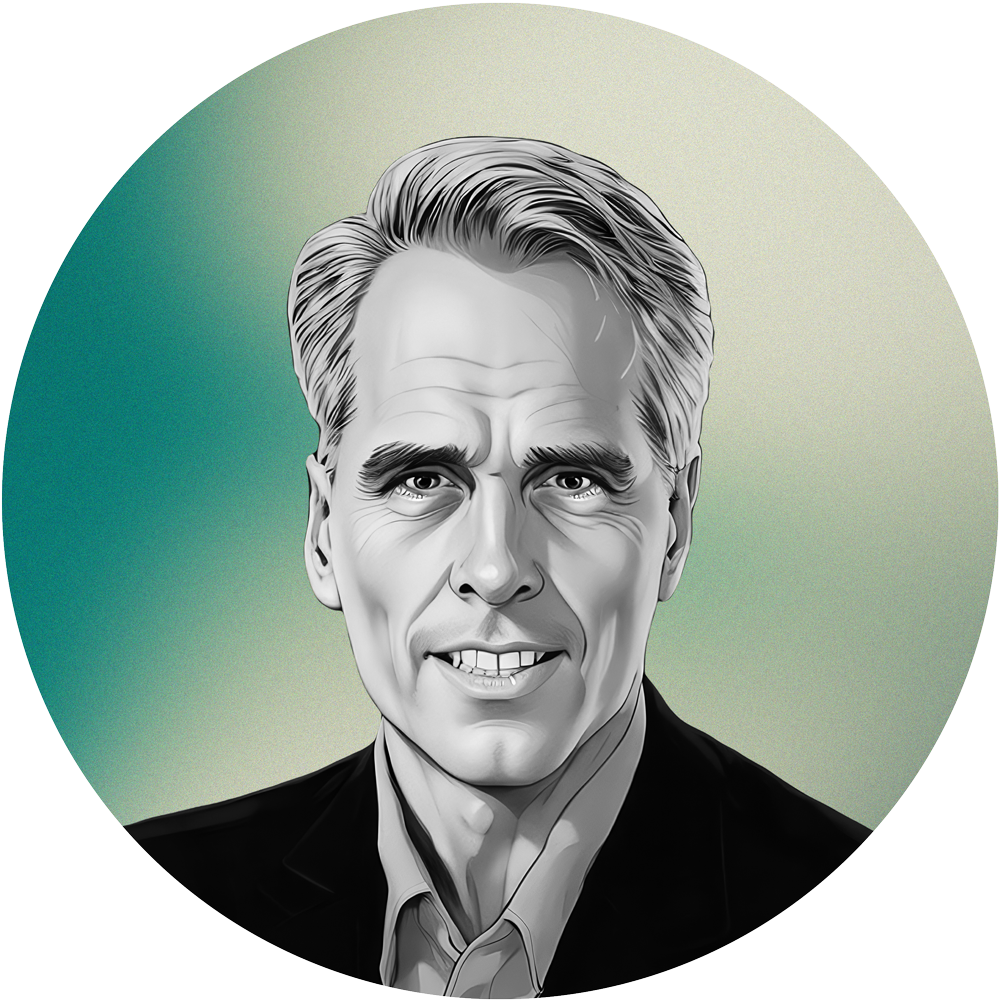WHO WE ARE
LICENSING THE NEXT GENERATION OF STEM CELLS
OUR MISSION
To lead the world in regenerative medicine by delivering innovative, science-backed therapies that enhance healthspan, restore vitality, and unlock the body’s natural potential for repair and renewal.
OUR VALUES
innovation
We embrace cutting-edge science to create groundbreaking therapies.
INTEGRITY
Trust and transparency are the cornerstones of everything we do.
Excellence
We are relentless in our pursuit of the highest standards in quality and care.
Empowerment
We empower individuals to take control of their health and well-being.

OUR STORy
The discovery of DEZAWA MUSE Cells™ — a remarkable population of pluripotent stem cells capable of repairing and regenerating damaged tissues — marked a turning point in modern medicine. First identified by Dr. Mari Dezawa, DEZAWA MUSE Cells™ have the unique ability to focus on areas of damage and naturally differentiate into the specific cells needed for repair. This groundbreaking discovery inspired us to reimagine what is possible in regenerative medicine and longevity science.
At MUSECell Innovations™, we are proud to lead this new frontier with innovative therapies like the DEZAWA GOLDEN IV™, a next-generation regenerative solution that combines DEZAWA MUSE Cells™ with advanced delivery technologies to maximize therapeutic outcomes. By targeting inflammation, promoting tissue regeneration, and enhancing the body’s natural repair mechanisms, we are transforming the pursuit of extended health into a tangible reality.
Scientific
Advisory Board
A world-class team of pioneers and biotech company builders backed by top-tier healthcare and strategic pharma leaders.

Mari Dezawa
Professor and Chair
Tohoku University Graduate School of Medicine

Professor and Chair
Tohoku University Graduate School of Medicine
Mari Dezawa
Professor Mari Dezawa graduated from Chiba University School of Medicine, Chiba, Japan, in 1989, was awarded the degree of MD, and worked as a resident in the Department of Internal Medicine at Chiba University Hospital. She started Neural Regeneration Research at the Department of Histology, Chiba University Graduate School of Medicine, was awarded her PhD in 1995, and continued her studies at Yokohama City University.
After moving to Kyoto University Graduate School of Medicine as Associate Professor in 2003, she developed methods to induce human mesenchymal stem cells (MSCs) to form neural and skeletal muscle cells (J. Clin. Invest, 2004; Science, 2005).
In 2008, she was appointed Professor and Chair of the Department of Stem Cell Biology and Histology at Tohoku University Graduate School of Medicine, where she discovered reparative pluripotent stem cells, Multilineage-Differentiating Stress Enduring (MUSE) stem cells, residing in the body (PNAS, 2010; PNAS, 2011; Nat Protocol, 2013; Cell Mol Life Sci, 2022).
Her team conducted pre-clinical studies for MUSE stem cells (Stroke, 2017; JASN, 2017; Cir Res, 2018; Mol Ther, 2020; Am J Transpl, 2021; JCBFM, 2021; J Invest Dermatol. 2021) and conducted clinical studies for their application in acute myocardial infarction, subacute stroke, amyotrophic lateral sclerosis, epidermolysis bullosa, neonatal hypoxic-ischemic encephalopathy, and cervical spinal cord injury (Stem Cell Transl Med, 2024).
She has been awarded several prizes, including the Prize for The Commendation for Science and Technology, Japan Government (2011). In 2018, she was appointed a fellow of the National Academy of Inventors (NAI) in the USA.

Dr. Kenneth M. Ford
Founder & CEO Emeritus, Institute for Human & Machine Cognition (IHMC)

Founder & CEO Emeritus, Institute for Human & Machine Cognition (IHMC)
Dr. Kenneth M. Ford
Kenneth Ford is Founder and Chief Executive Officer of the Florida Institute for Human & Machine Cognition (IHMC) — a not-for-profit research institute located in Pensacola, Florida. IHMC has grown into one of the nation’s premier research organizations with world-class scientists and engineers investigating a broad range of topics related to building technological systems aimed at amplifying and extending human cognition, perception, locomotion, and resilience. Richard Florida has described IHMC as “a new model for interdisciplinary research institutes that strive to be both entrepreneurial and academic, firmly grounded and inspiringly ambitious.” IHMC headquarters are in Pensacola with a branch research facility in Ocala, Florida. Ford is the author of hundreds of scientific papers and six books. Ford received his Ph.D. in Computer Science from Tulane University. He is Emeritus Editor-in-Chief of AAAI/MIT Press and has been involved in the editing of several journals. Ford is a Fellow of the Association for the Advancement of Artificial Intelligence, a charter Fellow of the National Academy of Inventors, a member of the Association for Computing Machinery, a member of the IEEE Computer Society, and a Fellow of the American Association for the Advancement of Science.
In January 1997, Ford was asked by NASA to develop and direct its new Center of Excellence in Information Technology at the Ames Research Center in Silicon Valley. He served as Associate Center Director and Director of NASA’s Center of Excellence in Information Technology. In July 1999, Ford was awarded the NASA Outstanding Leadership Medal. That same year, Ford returned to private life and to the IHMC.
In October of 2002, Ford was nominated to serve on the National Science Board (NSB) and the United States Senate confirmed his nomination in March of 2003. The NSB is the governing board of the National Science Foundation (NSF) and plays an important role in advising the President and Congress on science policy issues. In 2005, Ford was appointed and sworn in as a member of the Air Force Science Advisory Board. In 2007, he became a member of the NASA Advisory Council and on October 16, 2008, Ford was named as Chairman – a capacity in which he served until October 2011. In February of 2012, Ford was named to a two-year term on the Defense Science Board (DSB). In 2013, he became a member of the Advanced Technology Board which supports the Office of the Director of National Intelligence (ODNI). In 2018, Dr. Ford was appointed to the National Security Commission on Artificial Intelligence.
Ford has received many awards and honors. In 2004 Florida Trend Magazine named Ford one of Florida’s four most influential citizens working in academia. The University of Bordeaux awarded the Doctor Honoris Causas in 2005. In 2008 the Association for the Advancement of Artificial Intelligence (AAAI) award Ford the Robert S. Englemore Memorial Award for his work in artificial intelligence. In August 2010, Ford was awarded NASA’s Distinguished Public Service Medal – the highest honor the agency confers. In 2012 Tulane University named Ford its Outstanding Alumnus in the School of Science and Engineering. In 2015, AAAI named Ford the recipient of the 2015 Distinguished Service Award. Also, in 2015, he was elected as Fellow of the American Association for the Advancement of Science (AAAS). In 2017 Ford was inducted into the Florida Inventor’s Hall of Fame. In 2020, Florida Trend Magazine named Ford one of its Living Legends, a list of all-time influential Florida leaders in business, medicine, academia, entertainment, politics, and sport.

Richard Serbin
Regulatory Strategist and Stem Cell Commercialization Expert

Regulatory Strategist and Stem Cell Commercialization Expert
Richard Serbin
With a vast set of experience, of particular relevance, Richard previously held the positions of Chief FDA Counsel at The Revlon Corporation and Chief FDA Counsel for The Johnson & Johnson Corporation. Mr. Serbin holds a B.S. degree from Rutgers University; a B.Ph. degree from Rutgers College of Pharmacy; a J.D, degree from Seton Hall Law School; and, a LL.M. degree in Trade Regulations from New York University – Graduate School of Law.
Mr. Serbin was part of the historic team that secured Vatican approval for the medical use of autologous stem cells, as well as regulatory approvals for the use of modified stem cells to treat human conditions across multiple jurisdictions.

Dr. Dominik Duscher, MD, PhD
Longevity Medicine, Stem Cell Biology and Regenerative Aesthetic Surgery Expert

Longevity Medicine, Stem Cell Biology and Regenerative Aesthetic Surgery Expert
Dr. Dominik Duscher, MD, PhD
Dominik Duscher MD PhD is a specialist in longevity medicine and plastic surgery, a scientist, bestselling author, consultant and entrepreneur. After studying at the Medical University of Vienna, University College London and Harvard Medical School, he completed a postdoctoral fellowship in Stem Cell Biology and Regenerative Medicine at Stanford University. From 2017-2020, Dr. Duscher was Director of the Research Department for Plastic Surgery at the Technical University of Munich.
His research focus is the optimization of cell function in old age and diabetes. He holds several patents, has published more than 160 scientific papers and has written bestsellers in regenerative medicine and aging research. His research on skin and hair regeneration led to the founding of multiple biotech companies. He is director and owner of the Longevity Centre Munich, the first facility in Europe for institutionalized longevity medicine. Currently, Dr. Duscher is the Chief Scientific Officer at Tomorrow Labs.

Vijay Vad, MD
Sports Medicine specialist at the Hospital for Special Surgery in New York and Assistant Professor at Weill Cornell Medical College

Sports Medicine specialist at the Hospital for Special Surgery in New York and Assistant Professor at Weill Cornell Medical College
Vijay Vad, MD
Dr. Vijay Vad is double board certified in physical medicine and rehabilitation (physiatry) and sports medicine. He focuses on minimally-invasive integrative treatments for sports injuries, knee arthritis and back pain via advanced Stem Cell therapies.
In addition to treating patients at the prestigious Hospital for Special Surgery out of NYC, Dr. Vad has previously served as the physician for the professional men’s tennis circuit (Association of Tennis Professionals, ATP) as well as the physician for the Westchester Classic of the PGA Tour, and MSG Tennis Showdown. Dr. Vad has written and published Back Rx, Arthritis Rx, Golf Rx and The New Rules of Running published by Penguin Random House.
In 2005, Dr. Vad’s bestseller Back Rx, was named the Wall Street Journal’s favorite health book of the year. He also authored two PBS national televisions specials entitled, ‘Stop Back Pain’ which premiered in June of 2011, and ‘Active with Arthritis’ which premiered in June of 2013.
As a researcher who constantly champions better treatments, Dr. Vad utilizes carboplasty which he has developed in conjunction with his colleagues in India, Ghana, and Germany. Through his use of tibial bone marrow-derived stem cells to treat knee arthritis he has minimized dependence on joint replacements, exhibiting promising results presented at the Orthopedic Research Society meeting, 2018.
Along with his scientific team in Boston, Dr. Vad has developed medical food capsules for dietary management of big diseases and to reduce dependence on anti-inflammatory medications and narcotics. His team has produced a highly absorbable curcumin called microactive plus curcumin, for managing arthritis and back pain.
Dr. Vad is the founder of the Vad Foundation, dedicated to educating disadvantaged girls globally and to medical research in the area of back pain and arthritis.

Dr. John Layke
World-renowned Plastic Surgeon and Regenerative Medicine Expert

World-renowned Plastic Surgeon and Regenerative Medicine Expert
Dr. John Layke
John Layke, DO, is a double-Board Certified plastic surgeon by the American Board of Surgery and the American Board of Plastic Surgery, renowned for his expertise in facial aesthetics as co-founder of the Beverly Hills Plastic Surgery Group. After graduating medical school and completing his General Surgery residency, he trained in Plastic and Reconstructive Surgery at Nassau University Medical Center in New York under the prestigious Long Island Plastic Surgical Group, the largest and oldest private practice group in America.
As Chief Medical Officer for Proactive Longevity, a forward-thinking company specializing in anti-aging treatment protocols, Dr. Layke has leveraged his passion for aesthetics to create Beverly Hills MD, an innovative skincare line blending cutting-edge dermal technology with natural ingredients. His decades of research and dedication to the aesthetics of aging led him toco-create STEM (Solutions Through Evolving Medicine), a regenerative medicine organization utilizing stem cells for their anti-aging properties, empowering patients to take control of their health and wellness. Dr. Layke has committed his medical career to discovering ways to “turnback the clock,” combining aesthetic procedures with regenerative medicine to enhance both appearance and functional performance beyond current expectations. His current research protocol shows promising evidence of recreating patients’ youthful dermal infrastructure. STEM’s partnership with Proactive Longevity further advances these innovative anti-aging solutions.
Dr. Layke also serves as the Medical Director for PureRx, a wellness group specializing in hormone optimization and peptide therapy. He has published in multiple medical and surgical journals and is a sought-after speaker for several cutting-edge biotechnology companies. Additionally, he serves on the Advisory Board for Neodyne Biosciences, known for state-of-the-art advanced scar therapy from Stanford University.
